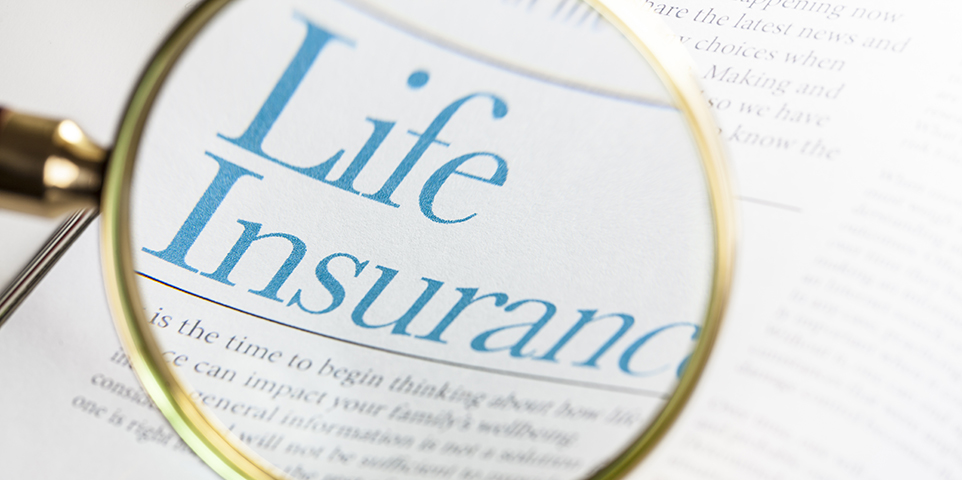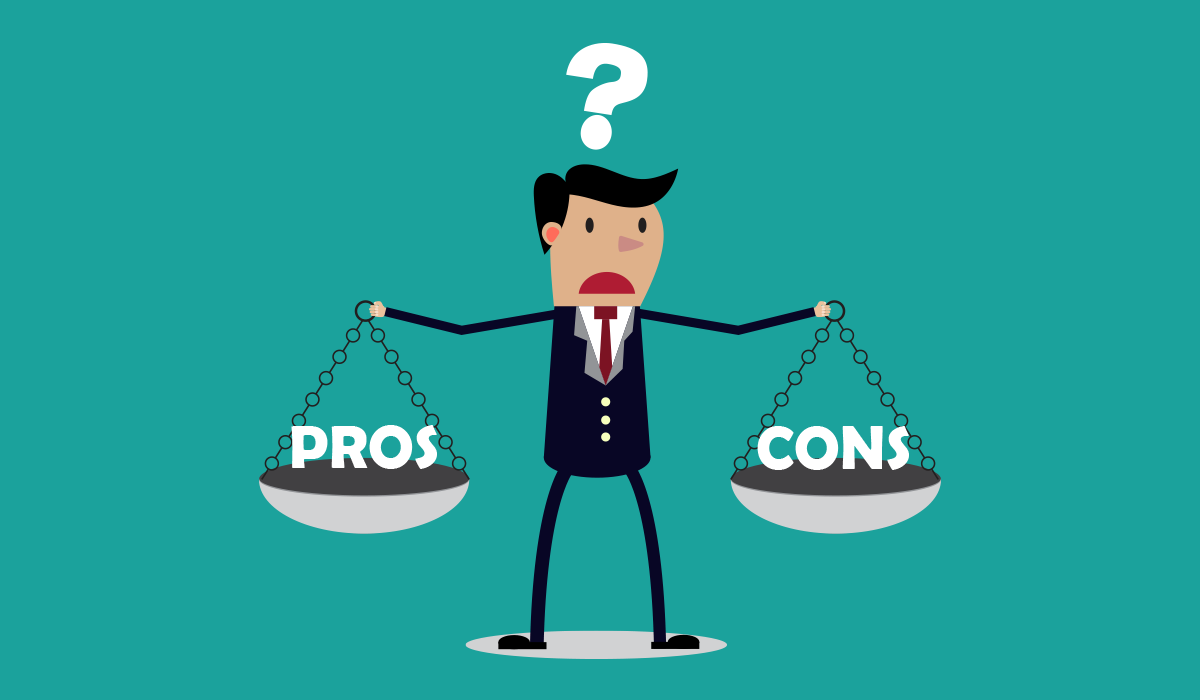You never know when calamity strikes. The only way to fend it off is to have insurance and make sure you are financially secure.
The root of every life insurance plan rests on the principle of creating a financial back-up that you can leave for your near and dear ones if something were to happen to you. The importance of Term Plans, which offer only death cover, cannot be undermined and is a must-have for anyone with financial dependents. The key to ensuring that your family is financially secure is to start early and to understand your financial goals before choosing insurance products. Once the foundation is laid, there is a choice available to add insurance to start one's needs and procedures.
The root of every life insurance plan rests on the principle of creating a financial back-up that you can leave for your near and dear ones if something were to happen to you. The importance of Term Plans, which offer only death cover, cannot be undermined and is a must-have for anyone with financial dependents. The key to ensuring that your family is financially secure is to start early and to understand your financial goals before choosing insurance products. Once the foundation is laid, there is a choice available to add insurance to start one's needs and procedures.
Likewise, the biggest financial blow you can face is owing to your ill-health, which at times, could render you in a situation much worse than even death.
Eventually, Health insurance is a comprehensive policy, which covers a wide range of health-related issues and there is a critical illness, which covers life-threatening diseases. "So, what basic health insurance does is to pay for the medical expenses that a policyholder experiences, while critical illness pays a specified lump sum amount to the insured on the occurrence of certain critical ill-ness defined in the policy such as Cancer, Cardiac Problems, Liver Failure, and so on.
Unit Linked insurance plans or Ulips have made a mark for themselves, more for the wrong reasons than right. These policies combine protection and investment and when managed well, have the right attributes to be your buddy through your life. The plethora of investment options available suit the different risk profiles of individuals from the safest fixed return-type investment at one end to the complexity market-linked ones on the other.
Ulips are the only plans that offer flexibility in the form of fund switch and premium redirection that helps customers to change their investment without having to withdraw from the plan. Through Ulips, you can move across equity and debt investments or a mix of the two in varying proportions, without having to worry over tax implications when switching across the available funds. That these policies come with a lock-in of five years.
Other, form of insurance like motor insurance, household insurance, travel insurance and even protection available for all your electronic gadgets like smartphones and tablet exists. These can help you face the financial risks you all exposed to in case any of these activities up. You never know when an earthquake can strike and shake the foundation of your house or your iPhone malfunctions. These are all risks, which do not come with prior notice, leaving you exposed to vagaries of life. What you can least do is protect your financial interests in meeting these risks.
Mix 'n' Match for your right match
Choosing insurance is not an arduous task if done smartly. All you have to do is clearly list out what you need and then look for the best fit.
ULIP: The paradox of choice can be best witnessed when it comes to insurance. The popularity of Life insurance can now be gauged by the introduction of a new kind of policy- the unit-linked insurance plan or Ulip. Ulips are financial products designed to meet the insurance and investment needs of an individual. Ulips are transparent, customer-friendly products that allow an individual to choose the asset allocation between debts and equity. In contrast, the older insurance plans, popularly known as Endowment and Money Back, largely invest the money into debt instruments. These Policies worked well in an environment of high-interest rate. Ulips come with a five-year lock-in and ensure that the policyholder gets a minimum sum-assured of 10 times the premiums for entry age below 45 years and seven times for entry age above 45 years. Ulips help policyholders tap the wealth creation opportunity in Indian capital markets over the long term, with fund options to suit their risk appetite.
The right mix
From your perspective, you should view insurance in a holistic manner than viewing it in isolation as life, health, motor and other forms. Evaluate your financial position-future financial goals, liabilities, the essential things in life that you cannot do without and the financial risk associated with these goals. For instance, when you start your career and are single, you don't need a Life insurance policy at all. Instead, you need a Health insurance policy. The first life insurance product one should buy is the Term plan. This help to ensure that the family has a financial safety net to fall back on, in case of an unforeseen tragedy. Term insurance is a no-frills plan, designed to ensure that in the event of the policyholder's death, the family gets the Sum-assured. As these do not have any savings or investments component, the premium cost less compared to the quantum of insurance cover.
Insurance basket
One should have a Health insurance cover at every stage in life. The rising cost of health care aside, unlike life insurance, which primarily works in case of an eventuality with you, Health insurance is something that you will need in your own lifetime. The choice within the available Health insurance basket is plenty. But does not mean that you need them all. Make sure you have a Basic Health Insurance Plan that covers you for health-related hospitalization and treatment including surgery.
More importantly, buying a policy is not a one time exercise. Circumstances in life change and so do financial needs. One should periodically say, once every five years, review the existing insurance coverage and keep on increasing the life cover as per the requirements. There are broad thumb rules, which are good to have in an indicative cover. "A person in the age group of 25-40 should have a life cover which is 30 times the annual income while individuals in the 40-50 age bracket should have a life cover of about 20 times their annual income. Whatever, your life stage, if you have Ulips, do make it a point to review the performance of the fund you have invested in to exercise the choice of shifting among them. Also, make it a point to understand the advantages of insurance policy and how to fit your needs before buying a cover.
Do not blindly buy insurance, it's like a double-edged sword. Buy right for peace of mind, buy wrong and you could be staring into gloom.
Caveat emptor (buyer beware) is the best approach, keep this checklist to ensure you are on top of your insurance.
Picking the right cover
 Life insurance is one of the most essential financial instruments that one needs, yet, choosing it is no mean task considering the wide array of choices available. To suit the varying needs of people, there are different types of plans, which work best to address these requirements. Read further to know exactly what each type of policy provides to make an informed choice.
Life insurance is one of the most essential financial instruments that one needs, yet, choosing it is no mean task considering the wide array of choices available. To suit the varying needs of people, there are different types of plans, which work best to address these requirements. Read further to know exactly what each type of policy provides to make an informed choice.
Do not blindly buy insurance, it's like a double-edged sword. Buy right for peace of mind, buy wrong and you could be staring into gloom.
Caveat emptor (buyer beware) is the best approach, keep this checklist to ensure you are on top of your insurance.
Picking the right cover
Read about the various hues of life insurance policies to make an informed decision in choosing the right fit.
 Life insurance is one of the most essential financial instruments that one needs, yet, choosing it is no mean task considering the wide array of choices available. To suit the varying needs of people, there are different types of plans, which work best to address these requirements. Read further to know exactly what each type of policy provides to make an informed choice.
Life insurance is one of the most essential financial instruments that one needs, yet, choosing it is no mean task considering the wide array of choices available. To suit the varying needs of people, there are different types of plans, which work best to address these requirements. Read further to know exactly what each type of policy provides to make an informed choice.
Term insurance
This is the most basic type of life insurance, which provides Life cover with no savings or investment returns. It is for this reason that these plans cost less compared to other types of insurance plans. When you take such a policy, you pay premiums towards a fixed insurance cover, which is the sum assured. In case of your demise, the sum assured is paid to the beneficiary's you nominate, which no element of savings or investments tried.
Endowment plans
Unlike term plans, these policies have the element of savings and investments attached to the Life cover. So in this policy, the sum assured is paid out in case of both survivals, at maturity, and death. Since the survival benefit is paid out, the premium outgo in these policies is higher as compared to term plans.
Whole life
As opposed to term and endowment plans, which are offered for a defined time period, say, till the insured turns 65 or 70 years old, a whole life policy covers a policyholder for his or her entire life. There is no pre-defined policy tenure. You can pay premiums till your demise or for a select time frame, with the policy proceeds going to your dependents after your death.
Ulip
Unlike other plans, the unit-linked insurance plan (Ulip) is a combination of life cover and market-linked investments. In case of death, your dependents will receive the higher of the sum assured or the value of investments, and in case of maturity, the policyholder receives the policy investment value.
Rider
With each life insurance plan, you can attach an additional risk cover to be guarded against accident or lii-health, at some extra cost. This way you can expand the scope of both life and health insurance for yourself, your spouse, parents, or any dependents, to go beyond life protection.

















